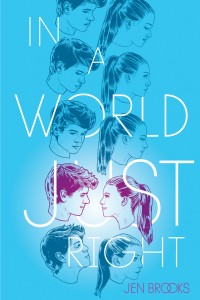edgy YA
The question of “too edgy” in YA
My latest YA manuscript contains sixteen uses of the “s” word in various forms, and one use of the “a” word. No “f”s, because that’s where I chose to draw the line with my character. It also has a scene of questionable sexual content, although it is not violent. Is my story appropriate for a YA audience?
I’ve been reading a lot of YA lately, mostly because I want to inform my own writing by studying what’s being published. I have to say, as a writer, former high school teacher, and parent (though my son is only three and still reading picture books), I have very mixed feelings about the issue of content in YA literature. My personal reading tastes tend to the “pure” rather than the “dark,” so I find some of the content of YA novels today stretch the boundary of my comfort zone. Fight-to-the-death contests for national entertainment and drugs in the water that encourage feral mating in the street, are two examples of YA content that makes me uncomfortable, even though both of these examples occur in books that have meaning–discussable, reading-circle meaning–above and beyond the element of shock.
And then there are novels that address such teen issues as drugs, cutting, anorexia, abuse, etc. I don’t deny that these are issues faced by teens today, but I also know that many teens aren’t touched by these issues at all, or if so, in a cursory way. I was touched by one of these issues. My best friend in high school was anorexic, and she directed me once to a novel titled Kessa so that I could understand some of what she was going through. It was helpful for me to read that book when I did, so I do believe “issue” novels belong in the adolescent canon.
It’s just that I fear that so much negativity, so much grotesque content, gives teens an unrealistic wide-angle picture of adolescence. (Much as TV and movie content gives an unrealistic picture of adulthood, or the “real” world, in general.)
Censorship, however, is NOT the answer. Or, let me clarify, censorship on a wide scale is not the answer. I’m all for censorship within a homeparents should be free to choose how to deal with their child’s reading choices in a way that is appropriate for their family.
As a teacher, though, I strongly disapprove of having a single parent’s parenting choices dictate the reading assigned in a classroom. When I was teaching, the issue of content came up only oncewhen I assigned Ken Follett’s The Pillars of the Earth to my Advanced Placement seniors for summer reading. One parent, who had read the book, took issue with the violence, including rape, Follett used. She requested that I assign the book in the Fall so my class had a forum for discussion as the reading occurred (as opposed to summer reading, when they had only their journal to talk to). I thought that was a reasonable request, so I substituted another book on the summer list and read Pillars along with our medieval unit.
The key here is that the parent had read the book and so was familiar with the content of the entire story and how the controversial elements were woven through the book’s themes. She did not demand that I pull the book altogether, but that I (and the class) could talk about any issues raised. In fourteen years of teaching, I never had to deal with an uninformed parent who objected to a book based on a single passage, or with a group of parents who went over my head and asked the school board directly to take action to ban a book. I get very, very angry when I hear these kinds of stories.
The truth is, if an earnest group of parents who had read Pillars of the Earth came to me and said they really wished I would take the book off the list altogether, I would have done so. One thing I’ve learned as an English teacher is that although I may have personal favorites for books I’d like to teach, there is never a book that is irreplaceable. I would not have considered such action a victory for censorship, I would have considered it a victory for adults talking it out and working together to make decisions in the best interests of children.
Of course, Pillars isn’t the best example because it’s not a YA book, but is today’s YA too edgy for the YA audience? Drawing a line is a pretty dangerous thing because there is no way that an entire nation of readers and parents of readers will agree on where that line should be. I just wish that more parents would read what their teens are reading so they can discuss the issues raised and help them to understand how accurately (or not) books portray life.
I’m wondering what the parents of my former students would think of my new book. I’d like to think it warrants placement on a summer reading list or, even better, placement in a classroom discussion, but ultimately, it’s not up to me. And that’s okay.
***
Here are a few articles you can check out if you want to read more on this subject:
This Wall Street Journal article by Meghan Cox Gurdon questions the rationality of having YA lit contain “explicit abuse, violence, and depravity.”
http://online.wsj.com/article/SB10001424052702303657404576357622592697038.html
This Huffington Post article by Ru Freeman agrees with Meghan Cox Gordon’s ideas.
http://www.huffingtonpost.com/ru-freeman/im-with-meghan-cox-gurdon_b_879880.html
Carla Javier, on the Knoxnews.com site, disagrees with Meghan Cox Gordon.
http://www.knoxnews.com/news/2011/jul/12/yas-can-handle-ya-lit/
A slightly older, but still relevant, article by Shelley Stoehr in The Alan Review.
http://scholar.lib.vt.edu/ejournals/ALAN/winter97/w97-02-Stoehr.html
An article by Mike Penprase at News-Leader.com about the upholding of a ban on Sherman Alexie’s The Absolutely True Diary of a Part-Time Indian.
http://www.news-leader.com/article/20100909/NEWS04/9090375/Stockton-book-ban-upheld-7-0-packed-public-forum
